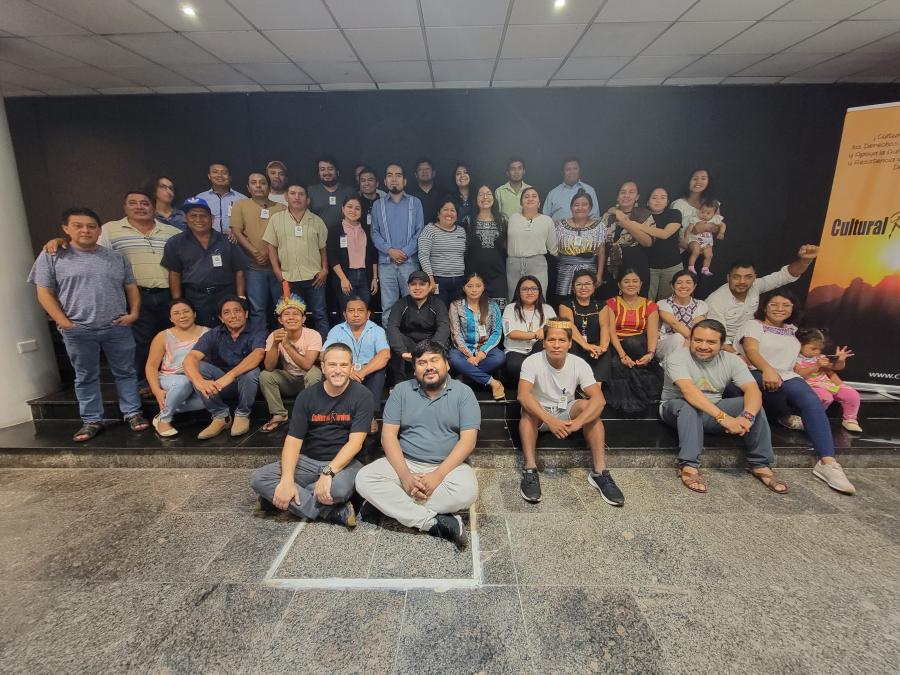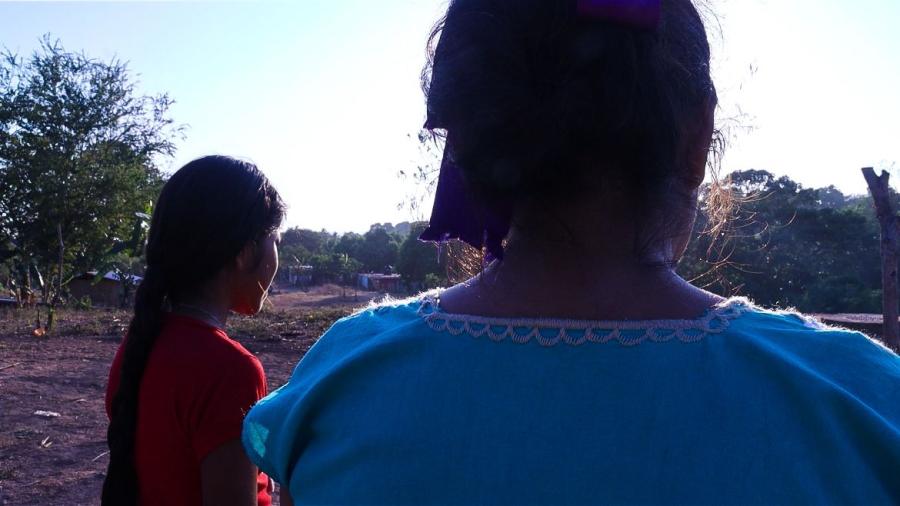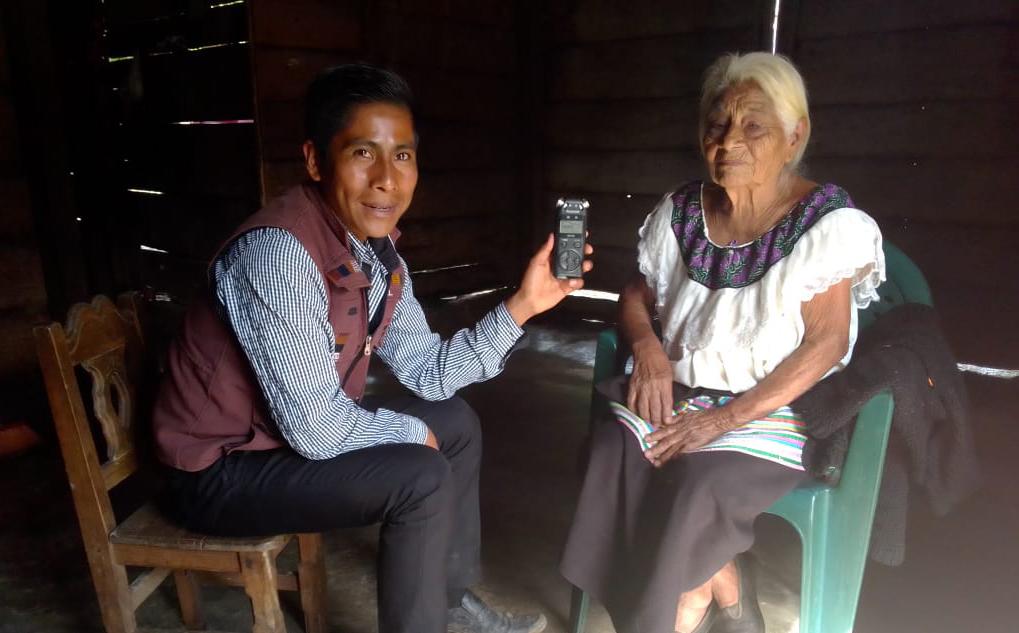
Manuel Guzmán conducting interviews with an elder in his community.
Manuel Guzmán and Jerónimo López, 30 and 23 years old respectively, are two young speakers of the Tzeltal language. Through Cultural Survival’s Indigenous Community Media Fellowship they developed the project "Traditional Knowledge in Community Communication Media," producing two series of radio programs documenting the valuable knowledge and practices of the Tzeltal people, from the municipality of Chilón in the northern region of Chiapas, Mexico.
Manuel Silvano Guzmán at Radio Ach 'Lequilc'op.
At Radio Ach 'Lequilc'op, which in Tzeltal language means "The New Voice", Manuel Silvano Guzmán from the Santo Ton community, produces the "Wisdom of the Grandparents" program, broadcasted fortnightly on Fridays from 4:00 pm to 5:00 pm. To make this program possible, Silvano conducted 16 interviews documenting traditional knowledge and practices of his community. These programs have reinforced the importance of ancestral knowledge and have created a space to share the realities of the communities focusing on language, traditions, and strengthening of Indigenous cultures of the region. He shares, “I would like to thank Cultural Survival for the opportunity to develop my program interviewing the elders. I wanted to speak with them because it is very important. Before, I knew nothing about grandparents, what they lived through, the knowledge they hold. Right now, I have been doing broadcasts, recordings, and going out in the communities in search of information about the knowledge of grandparents. They hold knowledge and wisdom from their relationships with Mother Earth, the environment, and nature. All of this is related to their deep knowledge. It is important to share this knowledge.”
Jerónimo López conducting interviews with an elder.
Jerónimo López from the Xexalha community directs and produces the program "Ancestral Healing Plants", broadcasted every two weeks on Saturdays from 11:00am to 12:00 pm, sharing information and practices related to preventive and curative health practices of the community. To make this program possible, López conducted 16 interviews with elders from different communities. He shares, “The experience that I have gained is learning more about medicinal plants and interviewing elders from different communities. There are some people in the region who no longer know which plants cure a disease. We have brought this knowledge back. I feel very proud to know that we will not lose our culture. I really enjoyed going out to the communities and working on cultural revitalization.”
The dissemination of Indigenous ancestral knowledge is very important, because by giving a voice to the elders, a series of stories are presented which are part of the soul of Indigenous cultures and are part of Indigenous heritage. Narratives are rooted in cultural systems of knowledge, beliefs, values, ideologies, modes of action, and emotions. The themes shared in both programs have made listeners strengthen their knowledge of their cultures, become aware and to continue to transmit or share that knowledge to younger generations. Radio Ach ’Lequilc’op’s audience is estimated at approximately 110,000 Tzeltal speakers.
Producing both programs had limiting and facilitating factors that allowed the two two young communicators to gain significant experience. Among the limiting factors were the long distances between communities needed to travel to reach several communities. Dirt roads both in winter and summer present transit difficulties. Sporadic public transport and limited timetables added to the difficulty of reaching interviewees. On other occasions, Guzmán and López had to adapt to the schedule of the interviewees until the grandmothers and grandfathers returned from their harvesting and agriculture activities, this meant that the fellows sometimes had to spend the night in the communities.
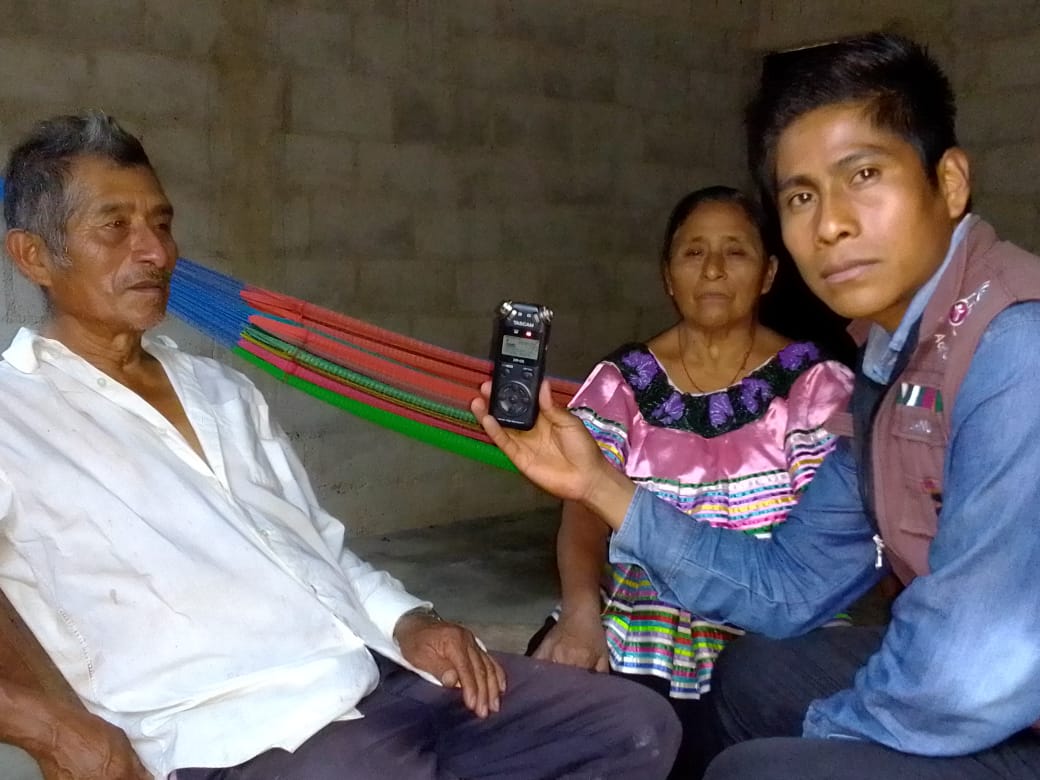
Manuel Silvano Guzmán conducting interviews.
The COVID-19 pandemic added another layer of difficulty since in some towns they locked down and turned people outside the community away, making it difficult to carry out the interviews. Other restrictive aspects were the weak internet signals in the communities and power failures. The fellows also had to gain new skills and learn new programs, equipment, and communication tools at the beginning of the project, however, constant practice facilitated the mastering of skills.
Through the Fellowship, Guzmán and López received training in how to conduct effective interviews. Clarity of the fellows in their goal towards working on the revitalization and dissemination of community knowledge and practices was important to implement the interviews and produce radio programs. Despite the COVID-19 pandemic, the communities were receptive to allowing the entry of young communicators, which allowed them to obtain accurate information and produce authentic programming. Guzmán and López know their communities and surrounding areas well and were able to strengthen the intergenerational transmission of ancestral knowledge and practices in the dialog they created between youth and elders in their communities as this intergenerational gap has been increasingly growing.
In addition to the positive outcomes of the project, there was a broad desire in the communities to learn and put into practice the training workshops that Guzmán and López received, in the technical, methodological, and relational areas. During these trainings, strict health and preventive measures protocols were followed.
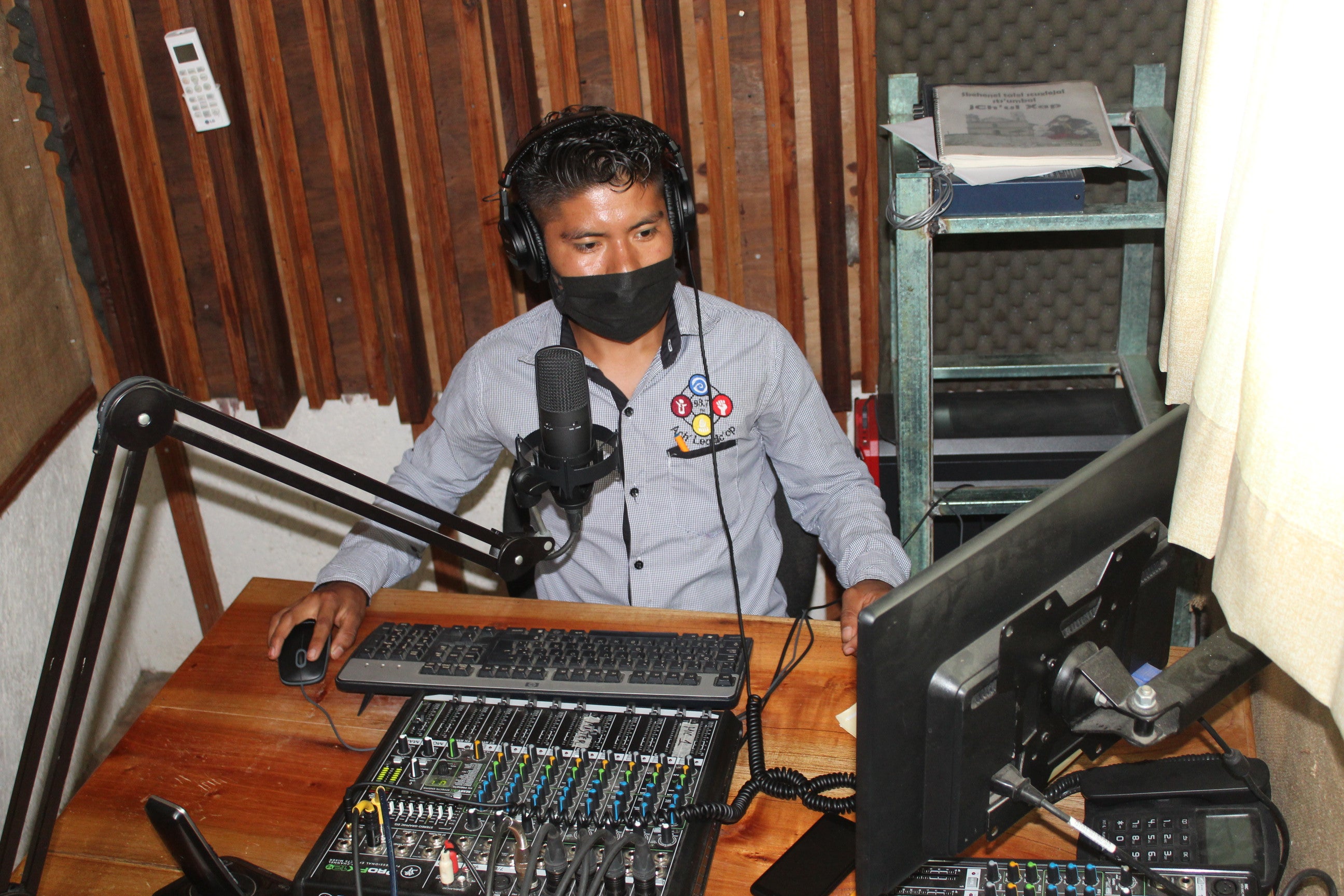
Jerónimo López on air at Radio Ach ’Lequilc’op.
Through these learning and training experiences, Guzmán and López demonstrated the transcendental role that young people have in Indigenous community radio stations by enabling the revitalization, documentation, and dissemination of the cultural wealth of Indigenous Peoples.
Although their project "Traditional Knowledge in Community Communication Media" has come to an end, the two radio programs continue to be broadcasted within the programmatic scope of Radio Ach ’Lequilc’op. Both programs contributed to the revitalization of the Tzeltal language, strengthened local awareness of ancestral cultures, and helped defend the traditions of local Indigenous Peoples. Younger generations need to know and listen to information about their ancestral ways, and radio is a very important means to achieve this.
Cultural Survival’s Indigenous Community Media Youth Fellowship supports individuals and groups of youth ages 17 to 25 in their efforts to build their radio journalism and radio broadcasting skills through trainings, community radio visits and exchanges, radio production, and conference attendance. Since 2018, we have supported 33 Indigenous youth fellows in 10 countries.

